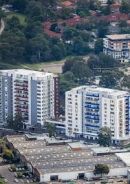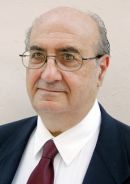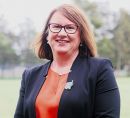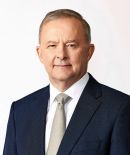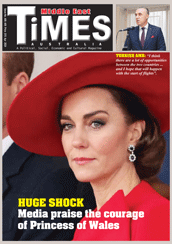| Cover |
| Saudi King Salman bin Abdulaziz receives the US President Obama |
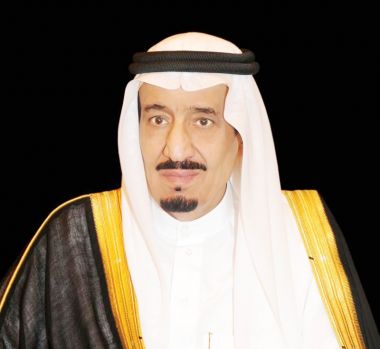 |
Saudi King Salman bin Abdulaziz receives the US President Obama Saudi Arabia’s new King is expected to focus on economic policy on jobs and multibillion dollar infrastructure projects. King Salman bin Abdulaziz al Saud, who took the throne after the death of his brother King Abdullah, must contend with falling oil prices and pressure to bring down the unemployment rate as he manages the political transition in the months ahead. King Salman could accelerate economic reforms that have been proceeding slowly, and introduce new ones that have been on hold because of their complexity and political sensitivity. Salman has the bureaucratic skills to push such reforms; as governor of Riyadh Province for over 40 years, he worked with technocrats and traditionalists to engineer the development of the capital from a desert town into a major city. As Crown Prince, Salman already played a major role in running the economy over the past several years, so policy bears his imprint. The late King Abdullah died at 91 after he was hospitalized with pneumonia. A new era has dawned in Saudi Arabia under the leadership of Custodian of the Two Holy Mosques King Salman as citizens across the country expressed their confidence in the new king’s ability to take the Kingdom to new heights of progress and prosperity. Custodian of the Two Holy Mosques King Salman took charge as the new ruler of Saudi Arabia in a smooth transition and pledged to continue current government policies to ensure stability and unity. In his keynote speech after ascending the throne, King Salman said that his government would follow the straight path, based on the teachings of the Qur’an and Sunnah, without deviating from the policies of his predecessors. The new leadership has taken over at a time when Saudi Arabia faces several challenges including falling oil prices and the threat posed by the Islamic State terrorist group in the north and the Houthis in the south. Custodian of the Two Holy Mosques King Salman took charge as the new ruler of Saudi Arabia in a smooth transition following the death of King Abdullah and pledged to continue the current government policies to ensure stability and unity in the country. King Salman, Crown Prince Muqrin, Deputy Crown Prince, Second Deputy Premier and Interior Minister Prince Mohammed bin Naif and other royal family members had received condolences from world leaders and citizens. World leaders converged on Saudi Arabia to offer condolences following the death of King Abdullah, with US President Barack Obama cutting short a trip to India to make a brief visit to Saudi Arabia to offer condolences to the family of the late king Abdullahbin Abdulaziz al Saud and begin building a diplomatic relationship with his successor. Secretary of State John Kerry is joining Obama in Riyadh, along with former Secretaries of State Condoleezza Rice and James Baker III. Sen. John McCain, the Arizona republican who is a frequent critic of Obama’s foreign policy in the Middle East, is also part of the delegation. A number of heads of state and government, especially from the GCC, Turkish President Recep Tayyip Erdogan, Pakistani Premier Nawaz Sharif and Egyptian Premier Ibrahim Mahlab, attended the funeral. Massive show of support for King A large number of citizens declared loyalty to their new ruler, Custodian of the Two Holy Mosques King Salman. Regional governors and ambassadors posted in Saudi diplomatic missions across the world also received pledges of allegiance on behalf of King Salman. Eastern Province Gov. Prince Saud bin Naif received citizens who made pledges of allegiance to King Salman, said an SPA report. On behalf of King Salman, Asir Gov. Prince Faisal bin Khalid met citizens and officials, who pledged allegiance to the new king. Thousands of citizens stood in line in front of Al-Yamamah Palace in Riyadh to meet King Salman. There was no blockade in front of the palace to restrict entry. “There was no discrimination. Everybody, including princes, ministers, Shoura members and ordinary citizens were allowed to meet the king without following any protocol”. Citizens from across the Kingdom came in their traditional attire. Sheikh Ibrahim bin Mohammed Al-Khereiji, an elderly man who was imam of the big mosque in Al-Kharj, made his way to the palace in a wheelchair. The man’s son, Abdul Aziz, said his father had met all the previous six kings. “He was a member of the delegation set up by King Abdul Aziz to receive King Farouk of Egypt when the latter visited the Kingdom on Jan. 24, 1945,” the son said. Al-Khereiji was appointed by King Abdul Aziz as a secretary in Al-Kharj and was in charge of distributing land among citizens. He established contact with King Salman when he was appointed the governor of Riyadh in 1955, the son said. King Abdullah remembered Members of the Shoura Council and senior government officials said that the country has lost a wise leader who took the nation to great heights of peace and prosperity. “We have lost a wise leader who dedicated his life and efforts to serve his nation and he remained the guardian of security and stability in the country as well as in the region,” Amin Al-Jaafri, deputy speaker of the Shoura Council, said after the death of King Abdullah. “He played a major role in strengthening solidarity among Arab countries and he was an ardent promoter of interfaith dialogue in the world and peace in the region. He also denounced violence and extremism which affected the peaceful coexistence among all communities,” he noted. King Salman King Salman is also known to have extensive contacts among the country’s tribes and his influence is further extended through a network of family businesses, including a stake in the pan-Arab newspaper ASharq Al-Awsat. At a relatively young age, King Salman became the governor of Riyadh in 1963 and over the next 48 years he oversaw its transformation from an isolated desert town into a crowded city of skyscrapers, universities and Western fast-food chains. He also saw it struggle to keep up with demand for affordable housing and sufficient public transportation for its four million residents. The post made him well known internationally, as he played host for VIPs and international envoys and helped secure foreign investment. He told the Americans that the key to bringing stability to the Middle East is to resolve the Palestinian-Israeli conflict, adding that Israel is “a burden on the US.” King Salman’s sons include Prince Abdulaziz, the deputy oil minister; Prince Faisal, the governor of Medina; and Prince Sultan, the first Arab astronaut and current head of the tourism authority. Salman had served as defence minister since 2011 and so was head of the military as Saudi Arabia joined the United States and other Arab countries in carrying out air strikes in Syria in 2014 against Daesh, the militant group that the kingdom began to see as a threat to its own stability. He takes the helm at a time when the oil powerhouse is trying to navigate social pressures from a burgeoning youth population — over half the population of 20 million is under 25 — seeking jobs and increasingly testing boundaries of speech on the internet. Salman’s ascension hands the throne to yet another son of Saudi Arabia’s founder, King Abdul Aziz Al Saud, who is thought to have had more than 50 sons from multiple wives. The Saudi throne has for decades passed between Al Saud’s sons. Prince Muqrin, the youngest of the sons at 69, was named crown prince in the royal court statement that announced Salman as king. Each succession has brought the kingdom closer to a time when the next generation — Al Saud’s grandsons — will have to take over. Australian flags at half-mast Flags on government buildings around Australia were flown at half-mast on Saturday to mark the death of King Abdullah. A directive issued by the Commonwealth Flag Officer noted: “As a mark of mourning and respect and in accordance with protocol, the Australian national flag should be flown at half-mast all day on Saturday, January 24, 2015 Australia-wide from all buildings and establishments occupied by Australian Government departments and affiliated agencies.” In Sydney, flags atop the harbour bridge flew at half-mast. A spokesman for Premier Mike Baird said this was because the NSW Government followed Commonwealth protocol. Kuwait's Amir mourns death of King Abdullah The Amir of Kuwait said in a cable of condolences to King Salman that he has lost with the death of King Abdullah a dear brother, a close friend and a companion with him he shared burdens and responsibilities. Sheikh Sabah stated that the Saudi kingdom achieved a comprehensive renaissance under late king Abdullah. He added that the Kuwaiti leadership and people would always remember with a sense of pride the great and supportive stances of the late king towards Kuwait, especially his stances during the Iraqi occupation of Kuwait, his care of Kuwaitis who fled to the Kingdom during that period and the Saudi Arabia’s massive contributions to the Kuwait liberation operation. Festivities cancelled in Kuwait Kuwait has declared three days of mourning over the death of Saudi King Abdullah . The organizing committee of the Fifth National Heritage Festival announced suspension of all of its activities and events for three days due to the passing of Saudi King Abdullah. The Hala February 2015 festival announced the cancellation of the remaining musical and entertainment events following demise of King Abdullah. Kuwait to name major road in honor of late Saudi King Kuwait will name a major road after the late Saudi King Abdullah bin Abdulaziz due to his place in the hearts of the Kuwaiti people and his huge contributions to his nation, the Cabinet agreed. HM Sultan Qaboos declares 3-day mourning His Majesty Sultan Qaboos has condoled the death of King Abdullah. HM ordered an official mourning period, with flags in the country to be lowered to half mast, and a three-day public holiday. His Majesty expressed his sincere condolences in a telegram to Salman bin Abdulaziz al Saud on the death of Abdullah bin Abdulaziz al Saud. “His Majesty expressed his sincere condolences to the Custodian of the Two Holy Mosques, and to the family of each Saud royal brother and the Saudi people, praying to Allah Almighty to rest the deceased in peace.” UAE President mourns UAE President Sheikh Khalifa Bin Zayed Al Nahyan said “We mourn the death of one of the most notable leaders of the Arab Nation and Muslim Nation who generously gave a lot to his people and his nation,” according to state media. While Sheikh Mohammed Bin Saud Al-Qasimi, ruler of the emirate of Sharjah, represents Sheikh Khalifa at the funeral of the late Saudi King. Grand Mufti pledges allegiance to King Salman Islamic scholars, tribal chiefs and officials also pledged allegiance to King Salman in the ceremony seen as a public endorsement of the new king. After pledging his allegiance, Grand Mufti Sheikh Abdul Aziz Al-Asheikh said: “On this blessed day, we pledge allegiance to King Salman as the legitimate king, Prince Muqrin as crown prince, Prince Mohammed bin Naif as deputy crown prince.” He added: “Dear brothers and sisters, we must maintain security and stability in the Kingdom.” He offered King Salman religious advice, praying to God to support him and grant him patience. King Abdullah was a man of mission From the moment he took over in 2005 after the death of King Fahd, the hugely popular King Abdullah was a man on a mission. The biggest challenge for him was to get the economy back into shape and end the isolation Saudi Arabia had faced in the international world after 9/11. He took drastic measures and bold decisions. He united his people by launching national dialogue. Saudis from every corner of the Kingdom were brought into the decision-making process. He launched many economic cities. A multitude of international conferences and seminars and meetings indicated a country on the move under an able leadership. Women regarded him as a benevolent father who cared for them, and understood their problems. He always received them with a smile. He knew the pulse of the Kingdom. When one day, he visited a poor household in Riyadh the whole nation gasped. Here was their king wanting to know the state of a fellow citizen. The media opened up. King Abdullah in a meeting with editors in chief advised them not to shy away from criticizing those in authority but asked them to do so in a constructive manner, and not indulge in slander. He announced that women would be able to take part in municipal elections; and brought in highly accomplished women into the Shoura Council. He was a statesman par excellence, widely respected because he spoke nothing but the truth. He helped Saudi Arabia attain considerable international stature and respect in the aftermath of the 9/11 debacle. King Abdullah had carried out a determined series of reforms aimed at modernising the country, including increasing education and nudging open the margins of rights for women. In a 2007 meeting, he told an outgoing US ambassador that “social and cultural factors” — even more than religious — mean change has to be introduced slowly and with sensitivity, noting the power of the multiple tribes in the kingdom, according to an embassy memo of the meeting leaked by the WikiLeaks whistle-blower site. He struck the same theme in a 2010 interview with Karen Elliot House, author of On Saudi Arabia: Its People, Past, Religion, Fault Lines. He told her that while Americans are unified by democracy, Saudi Arabia is in essence unified by his family, the Al Sauds. “We can’t have democracy in Saudi Arabia, he said, because if we did every tribe would be a party and then we would be like Iraq and would have chaos,” House said. Among his massive achievements included the interfaith dialogue, the domestic program to curb extremism, the Arab Peace Initiative, membership of the World Trade Organization, the introduction of human rights organizations, and the construction of the world-renowned King Abdullah University of Science and Technology (KAUST). His focus on education led to the creation of dozens of universities and colleges and institutes of excellence. A major portion of the budget was earmarked for education and health care. Princess Noura University in Riyadh and KAUST became the prized projects of the king. The world looked on in awe as the king, slowly but steadily marshaled his nation into a leading player in a highly globalized world. At the inauguration of KAUST, world leaders and academics from across the globe turned up. This university is now described as the Massachusetts Institute of Technology of the Middle East and has one of the highest endowments on the planet. It has attracted top brains from the best universities in the world. Tens of billions of dollars were poured into creating world-class infrastructure. Across the length and breadth of the Kingdom, tracks are being laid down to run trains. Soon Makkah, Madinah, Jeddah and Rabigh will be connected. The projects are in advanced stages of completion. Everywhere one goes, there are high-rise cranes on the horizon indicating the massive work under way. King Abdullah always stressed the need for moderation. He was a proponent of change. He was simple and firm. He wanted a solution to the Palestinian problem and that is why he floated the King Abdullah Peace Initiative. He established interfaith dialogue. He wanted the world to understand Saudi Arabia. King Abdullah did everything possible to make the journey of pilgrims comfortable. From introducing the Haj Metro to expanding the Jamarat bridge into a multistory complex. The Grand Mosque in Makkah is undergoing the biggest expansion in Muslim history. The Prophet’s Mosque in Madinah is being similarly expanded. Deputy Prime Minister Crown Prince Muqrin bin Abdulaziz Al-Saud Born: 1945 in Riyadh Education: Royal Air Force College Cranwell, United Kingdom. Positions Held: Royal Saudi Air Force, 1965-1980; appointed Assistant to Air Operations Manager and Head of Plans and Operations Division in the Royal Saudi Air Force, 1977; Governor of Hail Province, 1980-1999; Governor of Madinah Province, 1999-2005; Chairman of General Intelligence, 2005-2012; appointed advisor and special envoy of King Abdullah, 2012. Named Second Deputy Prime Minister by King Abdullah on February 1, 2013 and Deputy Crown Prince on March 27, 2014. King Salman named him Crown Prince and Deputy Prime Minister on January 23, 2015. Extended biography Second Deputy Prime Minister Minister of the Interior: Deputy Crown Prince Mohammad bin Naif bin Abdulaziz Al-Saud Born: August 30, 1959 in Jeddah Education: BA in political science, USA, 1981 Positions Held: Assistant Minister of Interior for Security Affairs (1999-2012); Minister of Interior since November 5, 2012. King Salman named him Deputy Crown Prince and Second Deputy Prime Minister on January 23, 2015. Minister of Defense (The youngest Cabinet Minister at 35) Prince Mohammed bin Salman bin Abdulaziz Al-Saud Born: Education: BA in law, King Saud University Positions Held: Secretary General of the Riyadh Competitiveness Center; special adviser to the chairman of King Abdulaziz Foundation; adviser at the Experts’ Commission of the Council of Ministers; special advisor to the governor of Riyadh Province; President of the Crown Prince’s Court and Special Advisor to the Crown Prince, since 2013; Minister of State and member of the Cabinet, 2014-2015. Appointed chief of Royal Protocol and special advisor to the Custodian of the Two Holy Mosques on January 23, 2015. Named Minister of Defense on January 23, 2015. |
- Egypt’s President Abdel-Fattah Al-Sisi visits the United Arab Emirates
- Kuwait considering hosting third Syrian donors’ summit
- Abdullah bin Zayed condemns Sydney terrorist act



